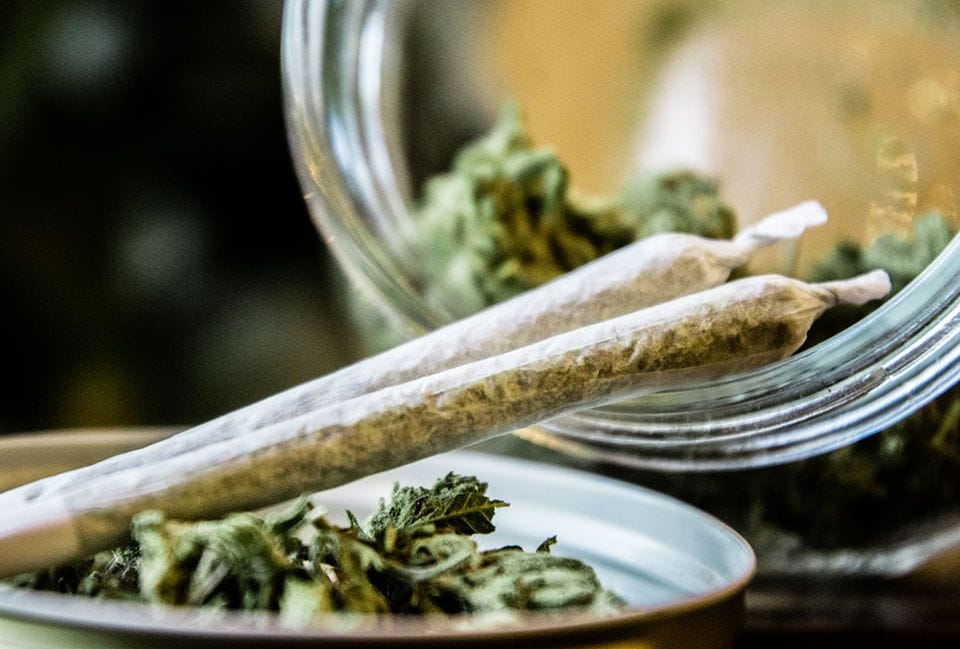Marijuana/cannabis users have higher rates for alcohol use disorder and problem gambling than people who do not use the drug, a team of American and British researchers has found. Impacts under consideration by the researchers included the potential for cannabis-using gamblers to develop diagnosable alcohol problems or uncontrolled gambling behaviors. Marijuana/cannabis use is one of the most popular and widespread forms of recreational drug intake throughout the U.S. Despite its benign reputation and social acceptability, this activity poses a number of known and unknown health risks for cannabis consumers.
Marijuana-Related Risks
Anyone who begins even an occasional pattern of marijuana/cannabis consumption can eventually develop cannabis use disorder, a condition characterized by dysfunctional, non-addicted cannabis abuse and/or cannabis dependence and addiction. The highest level of risk occurs in people who consume marijuana or any other form of cannabis every day or almost every day. Risks for cannabis use disorder are also unusually high in teenage marijuana/cannabis consumers. At least 25 percent of all daily marijuana users will someday meet the criteria for diagnosable cannabis problems, as will 17 percent of teen users. Marijuana/cannabis alters function in parts of the brain responsible for controlling impulsive action. It also alters function in parts of the brain responsible for such things as the ability to form or recall short-term memories, the ability to control emotional responses, the ability to control body movement, the ability to think logically or make critical decisions and the ability to place rewarding feelings within a larger context of experience. When consumed in heavy amounts, the drug can trigger episodes of psychosis (delusional thinking and/or hallucinations) very similar to the core symptoms of schizophrenia or schizophrenia-related disorders. Marijuana/cannabis also poses significant short- or long-term risks to normal cardiovascular (heart and blood vessel) and lung function.
Gambling and Gambling Disorder
Most adults who participate in various forms of gambling experience no real personal or social harm as a result of their activities. However, a small number of gamblers will eventually develop gambling disorder, a form of non-substance-related behavioral addiction that produces damaging changes in brain function and daily behavior that are strongly analogous to the core symptoms of substance addiction. The American Psychiatric Association (the organization that traditionally establishes the standard terminology for diagnosing mental health problems in the U.S.) fully recognizes gambling disorder as a diagnosable illness. As is true with cases of substance addiction, an unusually impulsive state of mind can help establish and reinforce a damaging pattern of gambling involvement.
Cannabis Use, Gambling Participation and Alcohol Problems
In the study published in the November/December 2014 Journal of Addiction, researchers from the University of Chicago and the United Kingdom’s University of Cambridge used information submitted by 377 adults to explore the impact of cannabis use in people who gamble. Two hundred fourteen of these study participants were gamblers who did not have problems severe enough to merit a gambling disorder diagnosis; roughly 30 percent of these gamblers consumed marijuana at some point in the recent past, while 70 percent did not. The remaining 163 participants acted as a comparison group and did not gamble or use marijuana/cannabis. All study participants underwent assessments of their gambling behaviors, their level of impulsive behavior and their involvement in other forms of substance use. After completing their assessments, the researchers concluded that the study participants who consumed marijuana/cannabis gambled more often in any given week than the participants who did not consume the drug. They also concluded that the marijuana/cannabis users had higher rates for alcohol use disorder, a condition that includes both alcohol dependence (alcoholism) and non-dependent alcohol abuse. The researchers found that the gamblers who consumed marijuana/cannabis had higher levels of impulsive behavior than the gamblers who did not use the drug. In addition, they concluded that both the cannabis-using gamblers and the non-cannabis-using gamblers had higher impulsivity levels than the members of the comparison group that neither gambled nor consumed marijuana/cannabis. The study’s authors didn’t definitively determine if the use of marijuana/cannabis actually promotes impulsive behavior, increases gambling participation and diagnosable problems with alcohol or merely occurs in association with these issues. They believe that future researchers will need to conduct lengthier, more extensive studies to confirm or disprove cannabis intake as a cause of impulsive involvement in gambling or alcohol use.



